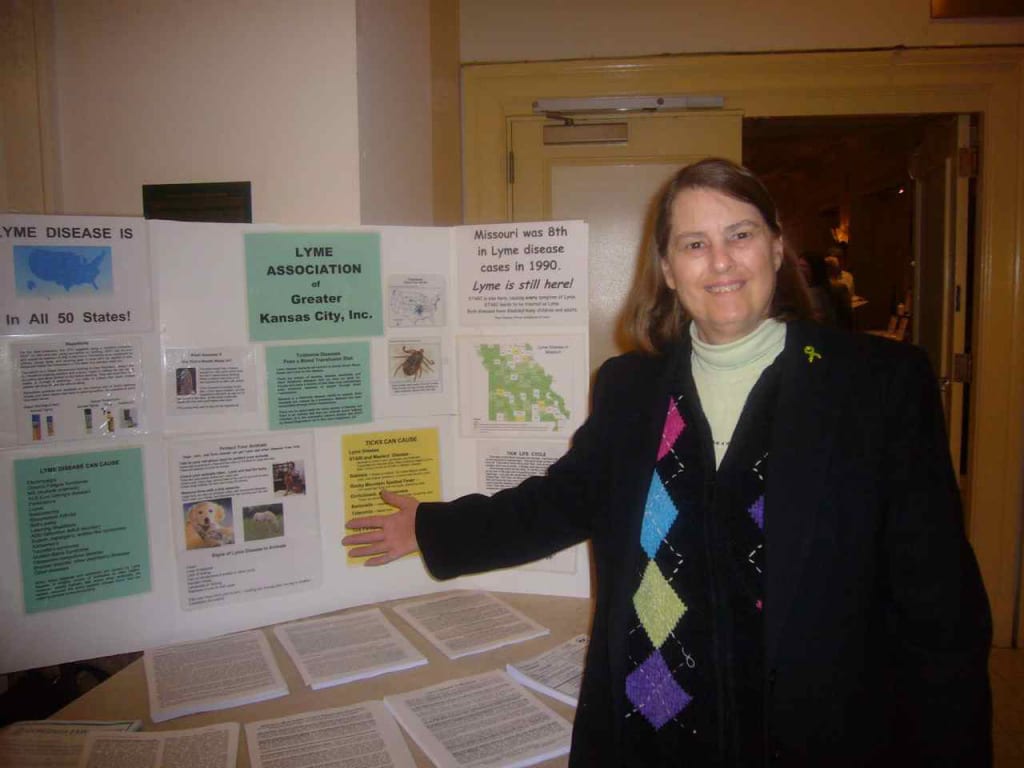NEWS: Midwestern Lyme advocate sidelined by a stroke

Kansas City’s Kathy White regrets having to miss CDC’s upcoming Lyme meeting.
You can’t keep a good woman down. Lyme advocate Kathy White was on her way to the Lyme Disease Association’s scientific conference in Minneapolis last Friday when she suffered a stroke that left her right side paralyzed.
“I’m glad it happened at the airport before I left and not after,” White said. “They got me to the hospital in 30 minutes.”
Now in a rehab center – and doing well – White is fretting about another Lyme meeting she will have to miss on June 11. The CDC has invited about ten patient advocates to their national facility in Fort Collins, CO, to share concerns and tour the lab. White is trying to figure out how to give her 10-minute presentation in absentia. She hopes they will accept a video.
“I can’t participate in a teleconference, because they have me doing physical therapy from nine in the morning until four pm,” White explains.
White takes her advocacy seriously. As secretary of the Lyme Association of Greater Kansas City, she typically puts in 40-60 hours of volunteer work each week. She is responsible for the nonprofit’s newsletter and takes part in numerous educational events each year.
At first she was not sure she wanted to go to Ft. Collins meeting because the agency has caused so many problems for the Lyme community. She feared the meeting might be a waste of time but decided to go just for the opportunity to communicate.
“The information the CDC puts on their website just keeps getting worse,” she says. “At least we can find out who is responsible for all the misinformation.”
White wants the CDC to drop the ELISA from the agency’s surveillance criteria, since it is so inaccurate, and to stop advising doctors to skip the western blot if the ELISA is negative. Most current commercial tests are based exclusively on the northeastern strain of Borrelia, which makes them insensitive to strains in other parts of the country. Researchers say it misses up to half the patients – or even more, White thinks, in the Midwest and South. With no diagnosis some very ill people go without treatment for years, White says, especially people who are infected by strains there are no tests for.
White also thinks the CDC should expand its definition of Lyme to include related Borrelia that produce the exact same symptoms. The CDC recognizes only the northeastern strain as Lyme disease.
White is not sure she will be able to continue her volunteer work after she is released from rehab, but she is determined to do as much as her health allows.
This article was written by Phyllis Mervine, founder and president of LymeDisease.org.




















We invite you to comment on our Facebook page.
Visit LymeDisease.org Facebook Page